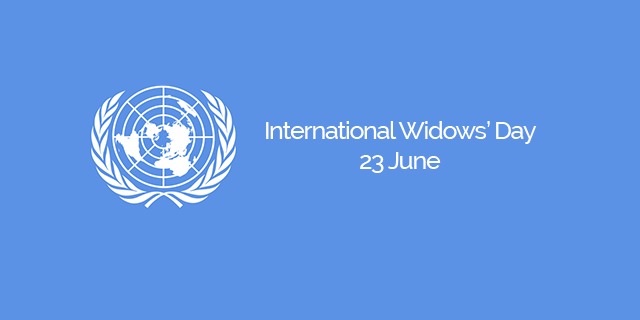KATHMANDU: ‘International Widows Day’ is being observed across the globe today. The day is marked to draw attention to the voices and experiences of widows and to galvanize the unique support that they need.
The loss of a partner is devastating. For many women around the world, that loss is magnified by a long-term struggle for basic needs, their human rights and dignity. They may be denied inheritance rights to the piece of land that they relied on for a livelihood or evicted from their homes, forced into unwanted marriages or traumatizing widowhood rituals. They are stigmatized for life, shunned and shamed. And, many of these abuses go unnoticed, even normalized.
There are an estimated 258 million widows around the world, and nearly one in ten live in extreme poverty. As women, they have specific needs, but their voices and experiences are often absent from policies that impact their survival.
Towards Progress for Widows
International Widows Day is an opportunity for action towards achieving full rights and recognition for widows. This includes providing them with information on access to a fair share of their inheritance, land and productive resources; pensions and social protection that are not based on marital status alone; decent work and equal pay; and education and training opportunities. Empowering widows to support themselves and their families also means addressing social stigmas that create exclusion, and discriminatory or harmful practices.
Furthermore, Governments should take action to uphold their commitments to ensure the rights of widows as enshrined in international law, including the Convention on the Elimination of All Forms of Discrimination Against Women and the Convention on the Rights of the Child. Even when national laws exist to protect the rights of widows, weaknesses in the judicial systems of many States compromise how widows’ rights are defended in practice and should be addressed. Lack of awareness and discrimination by judicial officials can cause widows to avoid turning to the justice system to seek reparations.
Programs and policies for ending violence against widows and their children, poverty alleviation, education and other support to widows of all ages also need to be undertaken, including in the context of action plans to accelerate achievement of the Sustainable Development Goals.
In post-conflict situations, widows should be brought in to participate fully in peace building and reconciliation processes to ensure that they contribute to sustainable peace and security.
(With Inputs from United Nations)








Comment